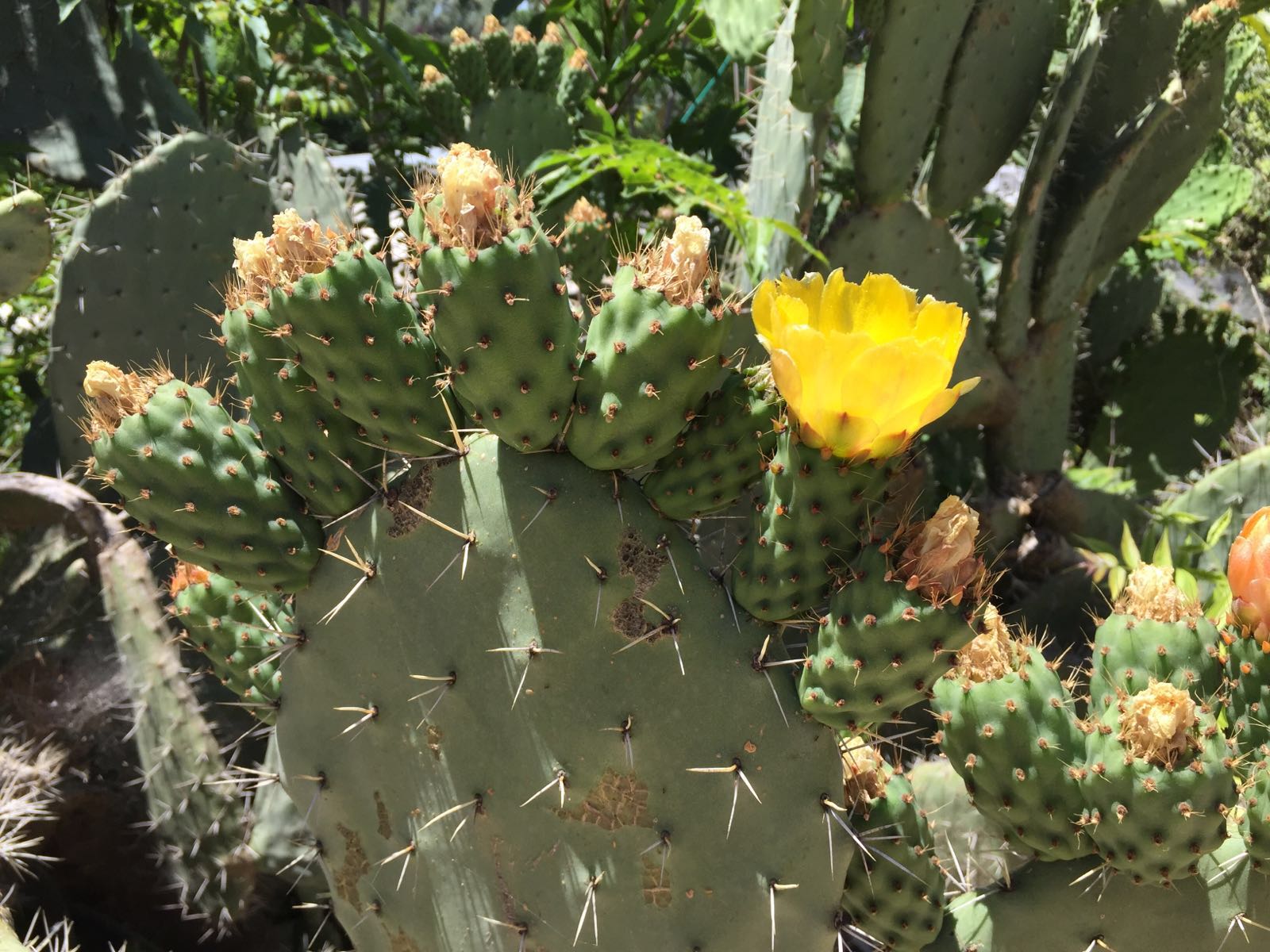
25 May 2016 From Slavery to Eternal Freedom
 In this week’s parsha, Parshas Behar, the Torah commands us regarding the Shmittah and Yovel years. For six years you may work the fields, and on the seventh year, the Shmittah year, it is a Shabbat Shabbaton – a year of rest to Hashem. The holy land of Israel lies fallow; the land and its produce become ownerless, available to man and beast alike, as we are reminded that there is truly only One Owner of all. During the Yovel year, the fiftieth year, which comes after seven cycles of counting seven Shmittah years, the same laws apply with further edicts regarding the freeing of Hebrew slaves and land ownership (See Lev.25:1-13).
In this week’s parsha, Parshas Behar, the Torah commands us regarding the Shmittah and Yovel years. For six years you may work the fields, and on the seventh year, the Shmittah year, it is a Shabbat Shabbaton – a year of rest to Hashem. The holy land of Israel lies fallow; the land and its produce become ownerless, available to man and beast alike, as we are reminded that there is truly only One Owner of all. During the Yovel year, the fiftieth year, which comes after seven cycles of counting seven Shmittah years, the same laws apply with further edicts regarding the freeing of Hebrew slaves and land ownership (See Lev.25:1-13).
Towards the end of the parsha, we are told: כִּי-לִי בְנֵי-יִשְׂרָאֵל, עֲבָדִים–עֲבָדַי הֵם, אֲשֶׁר-הוֹצֵאתִי אוֹתָם מֵאֶרֶץ מִצְרָיִם: אֲנִי, יְ – For the Children of Israel are slaves to Me, they are My slaves, whom I have taken out of the land of Egypt – I am Hashem, your G-d (Lev.25:55).
We were redeemed from the slavery of Egypt, from tyrannical Pharaoh, the forced labor, the taskmasters, the infanticide; we were redeemed from a voiceless, painful existence to one of triumph and hope. We left Egypt in Nissan and began our march to the Wilderness of Sinai, wherein we would accept the Torah from atop Har Sinai.
What did we gain, we may ask, with this new form of עבדות (slavery)? Before we were slaves to Pharaoh and now we are servants to G-d!
The answer, of course, is Torah. A life of servitude to Hashem, which comes with acceptance of Torah and the keeping of the mitzvos, is actually a life of freedom. The burden of Pharaoh almost broke us; על מלכות שמים (acceptance of the yoke of the Kingship of Hashem) ennobles us. The mortar and bricks of Egypt brought us down; the חקים and משפטים (categories of mitzvos) raise us up.
With the avdus in Egypt we were almost lost… With avdus to Hashem our nation was born.
(שאין לך בן חורין אלא מי שעוסק בתלמוד תורה (פרקי אבות ו:ב – For there is no free man other than one who engages in a life of Torah.
The freedom that is implicit in our status of עֲבָדִים is alluded to in the word itself.
The Bluzhover Rebbe, R’ Yisroel Spira zt’l, offered the following insight during a Pesach “Seder” that was conducted in the hell-on-earth that was the Bergen Belsen concentration camp. On that painful night of slavery, the Rebbe said, “On all other nights we eat either bread or matzah, but tonight, only matzah… Bread is leavened; it has height. Matzah is unleavened and is totally flat. During all our previous sufferings, during all our previous nights in exile, we Jews had bread and matzah. We had moments of bread, of creativity, and light, and moments of matzah, of suffering and despair. But tonight we experience our greatest suffering. We have reached the depths of the abyss, the nadir of humiliation. Tonight we have only matzah, we have no moments of relief, not a moment of respite for our humiliated spirits… But do not despair, my young friends!”
The Rebbe continued in a forceful voice, filled with faith. “For this is also the beginning of our redemption. The word for slaves in Hebrew is עֲבָדִים; the Hebrew letters of the word form an acronym for the Hebrew phrase: דוד בן ישי עבדיך משיחך – David the son of Yishai, your servant, Moshiach. Thus, even in our state of slavery we find intimations of our eventual freedom through the coming of the Messiah.
“We who are witnessing the darkest night in history, the lowest moment of civilization, will also witness the great light of redemption…”
The Seder concluded. Somewhere above, the silvery glow of the moon was dimmed by dark clouds. The Bluzhover Rebbe kissed each child on the forehead… As the children returned to their barracks, they were sure that the sounds of Moshiach’s footsteps were echoing in their own steps on the blood-soaked earth of Bergen Belsen. (Hasidic Tales of the Holocaust, Y. Eliach, p.18-19)
With redemption from Egypt came servitude to Hashem. But we must be ever aware that servitude to Hashem enriches us, gives us a life of freedom (not slavery!), refines and elevates us – as each mitzvah, each kind word, each utterance of Torah and tefillah, each act of chessed performed, brings us closer to the long awaited end of days. For being a servant to Hashem means always walking one step closer to the footsteps of Moshiach: עֲבָדִים – to be a servant of G-d is to always wait for, work for, hope and cry for: דוד בן ישי עבדיך משיחך.
As we approach the Yom Tov of Shavuos, the day of Dovid Ha’Melech’s birth, and death, may we merit to welcome Moshiach, with the fulfillment of: אֶת צֶמַח דָּוִד עַבְדְּךָ מְהֵרָה תַצְמִיחַ – the offspring of Your servant, (King) David, may You speedily cause to flourish…
בברכת בשורות טובות ושבת שלום,
Michal
לעילוי נשמת my grandfather, Simcha Aryeh ben Yosef Tzvi a’h, himself a Holocaust survivor, whose 21st yarzheit is today, 17 Iyar 5776. May his memory be for a blessing, amen v’amen.



Sorry, the comment form is closed at this time.